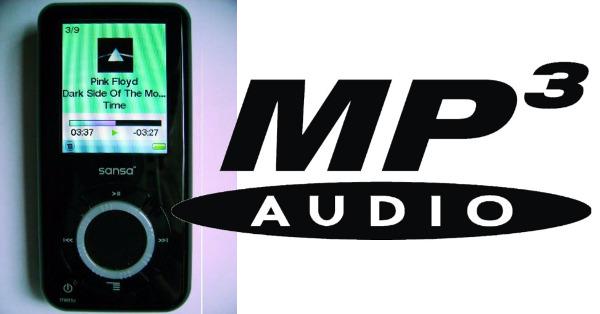180 gram vinyl is often 45 rpm. MP3 will continue to be "good enough" for most people. Wireless speakers and low bit rate streaming services are all an entire generation will know of music reproduction. Pity.
Ode to MP3

What this means, practically speaking, is that you no longer need a license to use MP3 in your product in the United States (the European patents expired in 2012). At least for its principle licensors, MP3, one of the most ingenious audio inventions of the century, and among the most lucrative, had lost its money-making mojo. MP3 is free.
Some journalists, in reporting the news, breathlessly declared that MP3 licensing was terminated because the technology was “obsolete.” While not exactly fake news, the reporting misses the point. The licensing entities that wrung countless millions from MP3 for 20 years are parting from their money machine not because it is obsolete, nor because the entities are suddenly feeling altruistic, but rather because the last of the vital patents undergirding MP3 have expired. And when a patent expires, the intellectual property it describes becomes public domain.
I’m sure that MP3’s patent attorneys considered legal ways to extend the patent protection. But in the end, they figured it wasn’t possible — or just wasn’t worth it. Their decision also accounts for the fact that the same licensing entities still have the ACC file format in their portfolio, with a few years left to run.
MP3 enters the public domain. It would be ironic if, now that it’s free, companies started to use it more extensively.
In any case, MP3 enters the public domain. It would be ironic if, now that it’s free, companies started to use it more extensively, thus giving it a lease on life. Of course, no matter what its legal status, MP3 will continue to be used as an effective means, albeit not the most efficient means, to reduce audio bitrates.The story of the development of MP3 is complex, with contributions from many talented engineers. But the greatest credit goes to Karlheinz Brandenburg, working on his doctoral dissertation at the University of Erlangen-Nuremburg, and James Johnston, a researcher at AT&T Bell labs; it was their brilliant collaboration that gave birth to MP3 in the late ’80s.
They realized that audio is not really a question of measurements, but rather one of perception. From Edison onward, engineers strove to make the numbers better, but Brandenburg and Johnston disregarded that game plan. Exploiting the limitations of the human hearing mechanism, and masking in particular, they devised an algorithm that allowed quantization noise to rise near the threshold of audibility allowed by momentary masking. They also incorporated a dozen other tricks into MP3, each designed to improve its coding effectiveness. As a result, the number of bits needed to code an audio signal could be dramatically reduced.
It is unfortunate that their creation was often maligned. Sure, at low bitrates, its artifacts are severe. But it is wrong to use that shortcoming to entirely condemn psychoacoustic coding. That would be like listening to a 45-rpm record and concluding that 180-gram vinyl also sounds poor. At higher bitrates, while still significantly reducing the signal’s input bitrate, MP3 can be transparent, thus validating its approach. Say what you want, but MP3 is an awesome piece of engineering.
It is impossible to overestimate how profoundly MP3 changed the trajectories of audio companies, the practices of consumers, and the fortunes of the music industry. MP3 may be leaving the corporate spreadsheets as a revenue generator, but it will be moved to a pedestal to stand alongside a select few other inventions that changed audio forever.
- Log in or register to post comments
































































